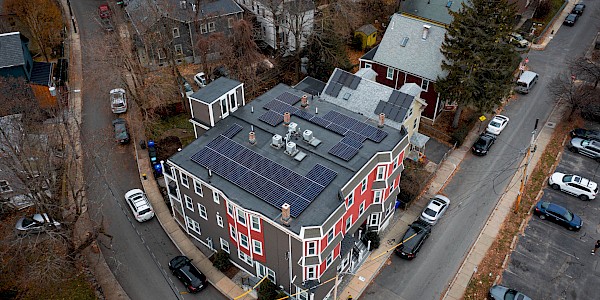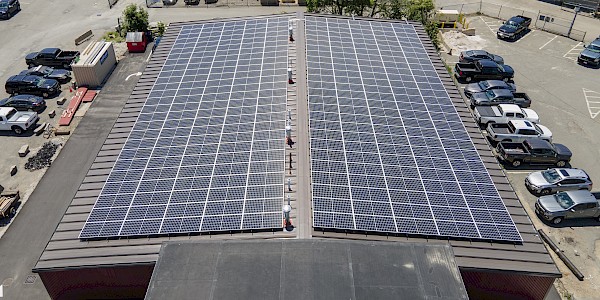Apr. 29, 2019
Making the switch to renewable solar energy takes careful thought and consideration — not only because solar is an important financial investment but also because the solar energy industry is relatively new to many. We work with homeowners and businesses alike who have a lot of questions about solar, including questions about some of the most common terms we use in the industry.
Whether you have questions about common terminology associated with solar panels, about the cost of solar, or about solar policies and incentives, check out our guide to common solar energy terms below.
-
Grid-tied: A type of solar PV system that is connected to the local utility grid. Grid-tied systems draw power as needed at times of low energy production, such as at night. This is the most common type of system that homeowners and businesses install.
-
Ground mount systems: Rather than installing solar panels on your roof, a ground mount solar system is a system where solar panels are attached to a racking system with its foundation directly in the ground.
-
Inverter: A device which converts the direct current (DC) power generated by a solar PV system into alternating current (AC) power that a home or building can use. Boston Solar uses SolarEdge inverters for our solar energy installations.
-
Kilowatt (kW): A unit of electrical power equal to 1,000 watts. kW are typically used to indicate solar panel system size. Boston Solar customers’ average size of a residential solar panel system is approximately 9 kW.
-
Kilowatt-hour (kWh): A unit of energy equal to 1,000 watts acting over a period of 1 hour. kWh are commonly used on utility bills to represent energy usage. The average American household uses 867 kWh of electricity per month.
-
Off-grid: A type of solar PV system that runs independently from the utility grid. Off-grid systems feature enough solar panels and battery storage to generate sufficient energy onsite, without access to utility-generated electricity.
-
Photovoltaic: A type of device, such as a solar panel, that converts sunlight into electricity. Often abbreviated PV.
-
Racking: The mounting system used to affix solar panels to the roof, building surface, or ground.
-
Solar Energy Monitoring: A monitoring system to see your solar energy system’s production power and the impact your system has on your electricity bills. We use SolarEdge or SunPower monitoring systems.
-
Solar-plus-storage: A type of solar PV system that features battery storage (also known as battery backup). These types of systems can store excess electricity generated during the day for use at night.
-
Solar Tracker: Unlike being in a fixed position, a solar tracker moves the racked solar panels to follow the position of the sun throughout the day for maximum energy capture.
-
Temperature coefficient: A number which represents how high temperatures affect solar panel efficiency. (As with all electronics, high heat can slightly reduce solar panel performance.)
-
Net metering: An agreement that gives solar PV system owners credit for the excess electricity their systems send into the utility grid. System owners may use credit to draw electricity from the grid as needed.
-
Production Guarantee: Boston Solar’s Production Guarantee assures energy production of at least 90% over the first ten years that a residential solar PV system runs — or we’ll pay the difference.
-
Solar loan: A loan which finances the cost of installing a solar PV system. Loan terms will differ depending on the lender. (Boston Solar offers several types of solar loans.)
-
SMART: Solar Massachusetts Renewable Target. A Massachusetts program which offers monthly financial incentives to home and business owners who purchase and install a solar PV system. (Read more about SMART here.)
-
Solar Panels and Inverters Warranty: When you purchase your solar PV system, Boston Solar offers the strongest warranty package in Massachusetts at no additional cost. You will have a 25 year warranty on the solar panels, guaranteeing a certain performance factor for the warranty time period. We’ve also extended the inverter warranty to 25 years as well.
-
Workmanship Guarantee: Boston Solar also offers a workmanship guarantee of 10 years, which guarantees our work and installation.
Still have questions about solar? Boston Solar is the #1 residential solar contractor based in Massachusetts. Call 617-858-1645 or contact us to learn more about solar!




